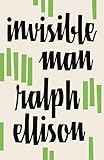M Shelly Conner’s debut novel everyman, out now in paperback from Blackstone, tells the story of Eve Mann, whose quest to learn about her past launches a multigenerational story set against the backdrop of the American South and the Great Migration. A temporally vast exploration of identity, inheritance, and liberation, everyman puts Conner in conversation with such literary forebearers as Toni Morrison and Alice Walker. We talked with Conner about the journey to publication, the personal inspiration behind the book, and negotiating the oft-competing demands of academia and literature.
The Millions: What was the genesis of everyman? Can you walk us through the journey from the novel’s inception to its publication?
M Shelly Conner: My mother, a retired Chicago public librarian, has always been a curator of our family history and stories. Collecting everything from obituaries to census records, she’s traced our maternal ancestry back to the early 1800s. I’ve always felt an incredible sense of pride in the repository of information that she’s gathered for us. As a young Chicago public school teacher, I wanted to share that experience with my students. I knew they wouldn’t get as far as my mother had, but I hoped that they would gather enough information from their relatives to feel their place as part of something bigger and unique to their lives. I was unprepared for some of the pushback they received from their families. I thought of the decades that my mother spent interviewing relatives and combing through records and wondered why some would work just as hard to do the opposite. Who are the names that are erased from family bibles? What are their stories? I wrote the majority of everyman as my dissertation during my PhD program at the University of Illinois at Chicago. It took an additional three years of revisions before I secured an agent, but it was acquired by a publisher rather quickly.
TM: You’re known as a multi-genre writer. Do you gravitate more strongly toward certain genres or find certain genres harder to tackle? Where does the genre of the novel fall for you?
MSC: I’ve written more pieces of creative nonfiction than any other genre. It’s probably because there’s a quicker turnaround to publication. I spent years writing in various genres by taking advantage of immersive experiences: playwriting with Chicago’s Black Ensemble Theater; sketch writing with The Second City theater; scriptwriting for television and web series opportunities; and most recently, writing a podcast episode for America’s Test Kitchen. I’m fluent in various storytelling genres, but fiction has always been my native tongue.
everyman took 16 years to come to fruition. It was my longest WIP even as I explored the other genres. I’ve now started my next novel and it feels strangely wonderful to write at this level—as a published novelist. All of my novel-writing skill set emerged through everyman. I’m finally getting the opportunity to apply those skills, as well as incorporate new technologies in creating new work.
TM: Eve, around whom everyman revolves, is such a well-rendered and dynamic character. When it comes to your characters, do you have them fully developed in your mind before you set pen to paper, or do you learn about them as you’re writing? Do you think any parts of yourself spilled into Eve?
MSC: Thank you for that. Eve thanks you for that. My characters are developed in my mind as far as traits, identity, their main goal/need, and their main conflict. But they definitely grow and teach me about themselves as I write them. If I’ve set them up with strong initial development, their subsequent thoughts, choices, and actions flow so freely at times that it feels like dictation.
Eve contains parts of myself—as do all the characters. People’s choices are based on their circumstances. In order to write empathetically, I first start imagining myself in different circumstances. Different parentage, lineage, geographic location, gender, orientation, et cetera. Eventually, you come to have a character that isn’t so easily recognizable as yourself, making choices that you would never dream to make in unimaginable circumstances. And yet, I do imagine them.
TM: Though part of the novel is set in Chicago, much of everyman feels like it belongs to—and pushes forward—a large and rich canon of Southern literature. The novel’s prelude, for instance, begins with a reflection on Southern life: “Small southern towns change slowly… It’s best represented by the southern drawl, like golden honey dripped onto biscuits.” Were you at all conscious of other writers and novels of the American South, of how the region has been traditionally portrayed and how you wanted to depict it?
MSC: At the time of writing it, most of my literary inspirations were products of the Great Migration, like myself. Our parents had left the South, yet we remained connected to it through stays with relatives in the South, our continued traditions, and our cultural continuity. everyman is a love letter to the home-south, Chicago’s southside, and the Great Migration that connects the two.
Toni Morrison’s parents were from Alabama and Georgia. Her novel Song of Solomon—a strong influence for everyman—is a reverse migration narrative. Milkman’s journey of self-discovery is geo-genealogical, like Eve’s in everyman. An early literary inspiration was also Zora Neale Hurston, and not just for her storytelling and multi-genre work. She was a fierce advocate for Black southern stories and dialects when other Black writers were distancing themselves from it and proving themselves capable of standard English. As Morrison notes, “The very serious function of racism is distraction.… Somebody says you have no language and you spend twenty years proving that you do.”
From Hurston to Morrison, we’ve seen what happens next. Black stories gain value but become represented by non-Black curators in major institutions like academia and publishing where there are shortages of actual Black people. I wanted to portray the South as I know it—as its grandchild. As the one who spent summers on her grandmother’s porch in Memphis. I wanted to capture so many nuances in the novel and dig beneath what has become cliché notions, one of the oldest being that the South is so slow that it is actually backward. So the very first paragraph tackles that notion and, hopefully, renders it beautifully—even seductively.

I didn’t know it at the time, but writers like Kiese Laymon, Regina Bradley, and others were doing the same thing—rendering nuanced Black landscapes of the South. Bradley’s work Chronicling Stankonia does this through the lens of Outkast and southern hip hop. It uses a key moment when the Atlanta-based rap duo Outkast upsets the traditional NY/West coasts rap landscape by winning Best New Rap Group at the 1995 Source Awards. Group member Andre 3000 famously said, “The south got something to say.” And it still does. Especially from Black folk. Even those who grew up bouncing between it and Chicago like children in dual-custody households.
TM: Kiese Laymon said that it “feels like Morrison and Walker guided the hand of the characters” in everyman—an incredibly high compliment! You were obviously conscious of Walker’s influence, as the novel begins with a quote of hers. In fact, each chapter begins with a different epigraph; one is from Ralph Ellison’s Invisible Man, another from Julie Dash’s film Daughters of the Dust. How did you channel all these influences into the writing of everyman? Who are some of your other literary influences?
MSC: Being likened to my greatest early literary influences (Morrison and Walker) by my greatest contemporary influence (Laymon) is mind-blowing. At times I can’t tell whether I channeled them or they channeled me. In any case, I am a grateful devotee of such communion.
 I read Invisible Man as an undergraduate at Tuskegee University. To read such a powerful work in the place of its own inspiration activated something within me. Writing everyman was the nexus between my literary influences and my own experiences. Other early literary influences are Zora Neale Hurston, Langston Hughes, Cherry Muhanji, Edward P. Jones, and Audre Lorde. My contemporary influences are Kiese Laymon, Deesha Philyaw, Dawnie Walton, Honorée Fanonne Jeffers, Mecca Jamilah Sullivan, and Robert Jones, Jr. to name a few of the many whose works have really informed my writing in recent years. I want to name them all and hope to have a chance to do so. Because there are so many of us that are doing the work and not being featured.
I read Invisible Man as an undergraduate at Tuskegee University. To read such a powerful work in the place of its own inspiration activated something within me. Writing everyman was the nexus between my literary influences and my own experiences. Other early literary influences are Zora Neale Hurston, Langston Hughes, Cherry Muhanji, Edward P. Jones, and Audre Lorde. My contemporary influences are Kiese Laymon, Deesha Philyaw, Dawnie Walton, Honorée Fanonne Jeffers, Mecca Jamilah Sullivan, and Robert Jones, Jr. to name a few of the many whose works have really informed my writing in recent years. I want to name them all and hope to have a chance to do so. Because there are so many of us that are doing the work and not being featured.
TM: You currently work in academia, as an assistant professor of creative writing at the University of Central Arkansas. How do you negotiate the dual, and sometimes conflicting, demands of working in academia and writing literature? How do you negotiate your professor-self and writer-self?
MSC: I went into academia for the purpose of merging those aspects of self. I believe in the cyclical nature of learning and growth—one moves from novice to practitioner to mastery as best demonstrated by teaching and learning new insights from those with whom you’ve shared your knowledge, thus completing the cycle of learning craft. But that’s very philosophical. In reality, there are demands in academia that sometimes conflict with my writer-self. They sometimes even conflict with my professor-self. Academia is very much a business of education that neither my professor- nor my writer-self is predisposed to entertain.
Yet it’s where I must be for the work that I need to do. It’s not just about reaching a certain level of professional recognition. It’s about ensuring that the works of Black writers, Black queer writers, and marginalized voices are in these spaces and are being taught by those of us with these experiences. Compared to the dualities that I experience as a Black queer woman marginalized in academia, the writer-professor negotiation is negligible.
The post Black Landscapes: The Millions Interviews M Shelly Conner appeared first on The Millions.
Source : Black Landscapes: The Millions Interviews M Shelly Conner







